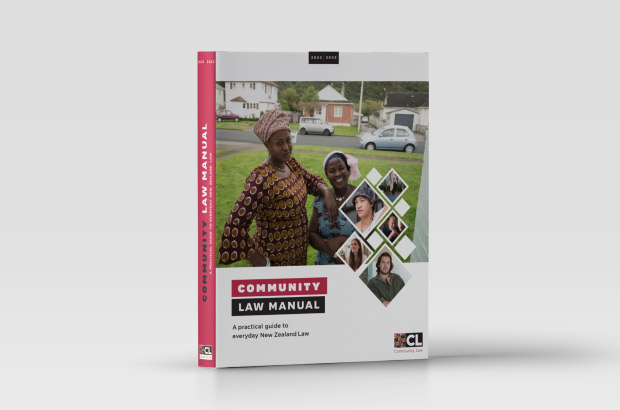Parental leave and parental leave payments
Getting parental leave payments: what you’re entitled to
Can I get parental leave payments?
Parental Leave and Employment Protection Act 1987, ss 2, 2BA, 23, 24, 71E
You might be able to get parental leave payments if you are having a child and you are taking leave from work as the ‘primary carer’ (see: “Who is a primary carer?” below).
You don’t automatically get parental leave payments if you are taking parental leave. There is one main criteria the government uses to figure out if you’re entitled to payments, the “Parental leave payment threshold test”.
Parental leave payment threshold test
You would meet this threshold test if you have been employed and working for any 26 of the 52 weeks before the child is born or before you become the primary carer of the child. You need to have worked for at least 10 hours per week, on average, but this can be with more than one employer and it doesn’t have to be continuous.
The threshold test is the same for self-employed people. You need to have been self-employed for any 26 of the 52 weeks before the child is born or before you become the primary carer of the child. You need to have worked for at least 10 self-employed hours per week, on average, but this can be for more than one type of work and doesn’t have to be continuous.
If you are both an employee and a self-employed person, you can’t combine your employed and self-employed hours to meet the threshold for parental leave payments.
Who is a primary carer?
For the purposes of parental leave and parental leave payments, a child only has one designated primary carer. Your employer and IRD will assume this is the birth parent or the primary adoptive caregiver, but you can let them know if your situation is different.
For example, you could be the primary carer if you are taking on the main caregiving responsibilities as:
- the spouse or partner of the birth parent, or
- mātua whāngai, or
- a “Home for Life” parent.
You aren’t considered a primary carer if you only take care of a child temporarily or part-time. You may be asked for evidence that you are the primary carer if you are someone other than the birth parent- for example, a letter from Oranga Tamariki or a completed statutory declaration.
I don’t qualify for parental leave payments. Can I still take leave from work?
If you don’t qualify for parental leave payments – for example, if you’re a partner, but won’t be the main caregiver, you might still be entitled to unpaid leave (see: “Taking parental leave”).
I qualify for parental leave payments, but I don’t meet the test to take time off work. Can I still get the parental leave payments?
If you are eligible to receive the parental leave payments from the government, but don’t meet the test to take time off work (for example, if you have recently switched jobs), you can still ask for leave from your current employer so you can access the parental leave payments. This is called “negotiated leave” (see: “Negotiated leave”).
How much will I get paid?
The amount you’ll get paid is your ordinary weekly pay or your average weekly income, whichever is more, but only up to a maximum amount.
If you have more than one job, the payment is based on your total income. The maximum amount you can get for parental leave payments each week is usually adjusted each year on 1 July.
You can view Employment NZ’s up-to-date guidance for parental leave payments online, here (or go to: employment.govt.nz and search “Amount of parental leave payment”).
How do I apply for parental leave payments?
Parental Leave and Employment Protection Act 1987, ss 71M-71P
You can apply through logging in to myIR.
If you’re applying for the first time, select the ‘I want to…’ tab, then ‘Register for Paid Parental Leave’.
If you’ve applied before, select ‘Apply for Paid Parental Leave’ from your paid parental leave account.
You’ll need your myIR login details, tax code and bank account number. If your baby hasn’t been born yet, you’ll need evidence from your lead maternity carer of your due date or the baby’s date of birth. If you’re taking over care of a child under six, you’ll need to show evidence that you are the primary carer. This could be a court order, a letter from Oranga Tamariki, or you can complete a statutory declaration.
You can use the template available on the IRD website, here (or go to: ird.govt.nz and search for “IR880D”).
Can I work while I’m getting parental leave payments?
You can only get parental leave payments if you’re not working. But, if you and your employer agree, you are allowed to do a maximum of 64 hours of paid work for your employer, called “keeping in touch days” without impacting your entitlement (see: “Keeping-in-touch days”).
What if my baby is born early?
Parental Leave and Employment Protection Act 1987, ss 71DA, 71J
You can get additional weekly payments before your parental leave payments kick in if your baby is born early. These are called “preterm payments”. You will get these payments if you’re eligible for parental leave payments and your baby is born more than three weeks early, and you can get them for a maximum of 13 weeks. You’ll get these preterm payments from when your baby is born until the end of what would’ve been your 36th week of pregnancy, at which point your regular paid parental leave payments will begin.
Can I transfer my parental leave payments to my partner?
You can transfer your parental leave payments to your partner if they are going to take on the primary caregiver role for the child for the rest of the leave period. They will need to meet the parental leave payment threshold test to be eligible.
What happens to my parental leave payments if I resign?
Your parental leave payments won’t stop if you resign, stop being self-employed, or your fixed-term employment agreement ends during your paid leave period.
What if I’m self-employed?
Self-employed people can also get parental leave payments if they meet the parental leave payment threshold test. You need to stop work for the time you’re getting payments.
What if I’m also entitled to paid parental leave under my employment agreement?
Parental Leave and Employment Protection Act 1987, s 4
Your employment agreement can’t change your eligibility for the government’s parental leave payments. However, you can get additional payments if your employment agreement includes better parental leave provisions – for example, your employer may have agreed to top up the payments to the amount of your full pay.
Can I take paid parental leave more than once?
Parental Leave and Employment Protection Act 1987, s 71F
Yes, you can take parental leave and get the payments more than once as long as it has been at least six months since you returned to work at the end of the previous parental leave. You must also meet the eligibility requirements each time.


